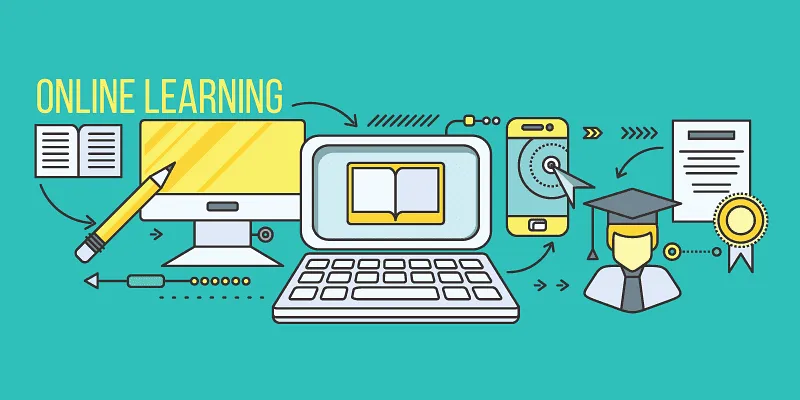[Pivot and Persist] How this deeptech startup is using AI, XR, blockchain to move its executive education business online
Enheroes is a deeptech startup that is looking at enabling executive education business to become equitable and pandemic resilient using its patent-pending invention a work from home super console — Digital Twin.
The impact of the COVID-19 pandemic on business has been bittersweet. While the lockdown-induced digitisation has led to significant growth in sectors such as education, other areas have been hit badly. One of them is the oil and energy sector, with the companies in the segment having been hit hard.
That was the case with Malaysia and India-based . The startup was preparing to build special purpose corporate university campuses for executives in the sustainable energy sector across the globe by allying with oil and energy corporations when the COVID-19 pandemic hit.
ENHEROES is an engagement platform based on AI, blockchain, and extended reality (XR) that aims to change the intellectual sustainability needs of the energy sector.
Understanding the impact of the pandemic and how it has transformed the way people work, ENHEROES pivoted and shaped its executive education business to be equitable and pandemic resilient using its patent-pending deeptech invention — a work from home super console called ‘Digital Twin’

The impact of the pandemic
The startup was founded in 2018 by husband-and-wife duo Shubhabrata and Suparva Samantaray. During the pandemic, the duo realised that a vast impact on the education sector was in different ways, including:
- Loss of learning: The pandemic adversely affected the conventional education model. The regular programme delivery processes got disrupted due to regulatory lockdown enforcement and students’ ability to pay for costly higher education was severely impaired due to uncertain finances.
- Loss in business: Private higher educational institutions make large capital investments in on-premises real estate facilitation due to which the cost of education remains high. The pandemic-induced regulatory norms made physical infrastructures into non-performing assets and a liability
- Loss of jobs: Private educational institutions trimmed their faculty strength during the pandemic to balance the budget of the institutions due to potential loss of revenue. The faculties with contractual assignments were the most vulnerable to being laid off, and educational institutions did not hold responsibility for their career or financial well-being.
- Gap in governance: The pandemic challenged the governance of higher education system for both public and private institutions. They were not equipped with the necessary digital infrastructure and remote collaboration devices that could ensure effective governance of end-to-end programme management systems.
“There is a latent need from students, faculties, and educational institutions to have access to equitable and unrestricted learning, earning, innovating, and starting up opportunities – collectively known as ‘intellectual sustainability’,” Shubhabrata tells YourStory.
Digital Twin programme
As a responsive measure, ENHEROES decided to introduce an on-demand intellectual sustainability model with a ‘Digital Twin’ mode that would ensure consistent programme delivery, irrespective of social distancing norms, while innovative fintech schemes ease the financial burden of executive education for those who have been affected by the loss of job or business due to the pandemic.
The concept of ‘Digital Twin’ is aimed at emulating the executive programmes offered at physical universities through extended reality.
“In April 2020, ENHEROES filed a utility patent for inventing a deeptech (AI-XR-Blockchain) powered operating system for intellectual sustainability. In order to achieve equitable executive education, the Super University project had to incorporate the invention into its digital platform, which was challenging. But a prototype version of the Digital Twin of the could be finally built in April 2021,” says Shubhabrata.
ENHEROES undertook a design thinking approach to offer a unified solution for corporate and communities for intellectual sustainability. The customer needs for intellectual sustainability were validated through a problem-solution decomposition fit process built in the core programme portfolio of EDEU.
Shubhabrata explains EDEU is an industry-first Digital Twin project with a patent-pending cognitive programme management system. It is compliant with global virtual campuses, extended reality-powered program delivery facility, innovation labs, digital summit platforms, and has its own XR access devices integrated with productivity apps.
He adds EDEU does not follow a conventional profit-centric business model, rather, it focuses on a benefit corporation model where ESG principles are given an equal importance as profitability.
Future and market
The Digital Super University is planned to be operated with an on-demand O2O (online to offline) freemium model.
ENHEROES has built an MVP prototype of a new kind of smart and autonomous shared agile learning and implementation system using the patent-pending invention that would be fundamentally instrumental in filling the intellectual sustainability gaps. The new business model incorporates the 3C factors i.e., community inclusion, corporate philanthropy, and circular economy.
“The novel programme management system of EDEU ensures that communities are empowered to have co-ownership in the digital university. Additionally, corporates can use impact investing and philanthropy as financial resource facilitators for incubated benefit corporations. Also, the programme enables innovative solutions emerging from out-of-the-box thinking at EDEU's hackathon programmes to create environmental, social, and governance impact,” adds Shubhabrata.
YourStory’s flagship startup-tech and leadership conference will return virtually for its 13th edition on October 25-30, 2021. Sign up for updates on TechSparks or to express your interest in partnerships and speaker opportunities here.
For more on TechSparks 2021, click here.
Edited by Kanishk Singh


![[Pivot and Persist] How this deeptech startup is using AI, XR, blockchain to move its executive education business online](https://images.yourstory.com/cs/2/a9efa9c02dd911e9adc52d913c55075e/oieFoz7AelUQr74-1592748140212.png?mode=crop&crop=faces&ar=2%3A1&format=auto&w=1920&q=75)
![[Funding alert] Lido Learning raises $10M investment led by Unilazer Ventures](https://images.yourstory.com/cs/2/a9efa9c02dd911e9adc52d913c55075e/Image0rw5-1631244930684.jpg?fm=png&auto=format&h=100&w=100&crop=entropy&fit=crop)






